The Garmin Epix 2 Pro’s Most Exciting New Features Ranked After 14 Days Of Testing
The Garmin Epix 2 Pro’s new heart rate monitor is promising and the new sizes in the range will widen the watch’s appeal
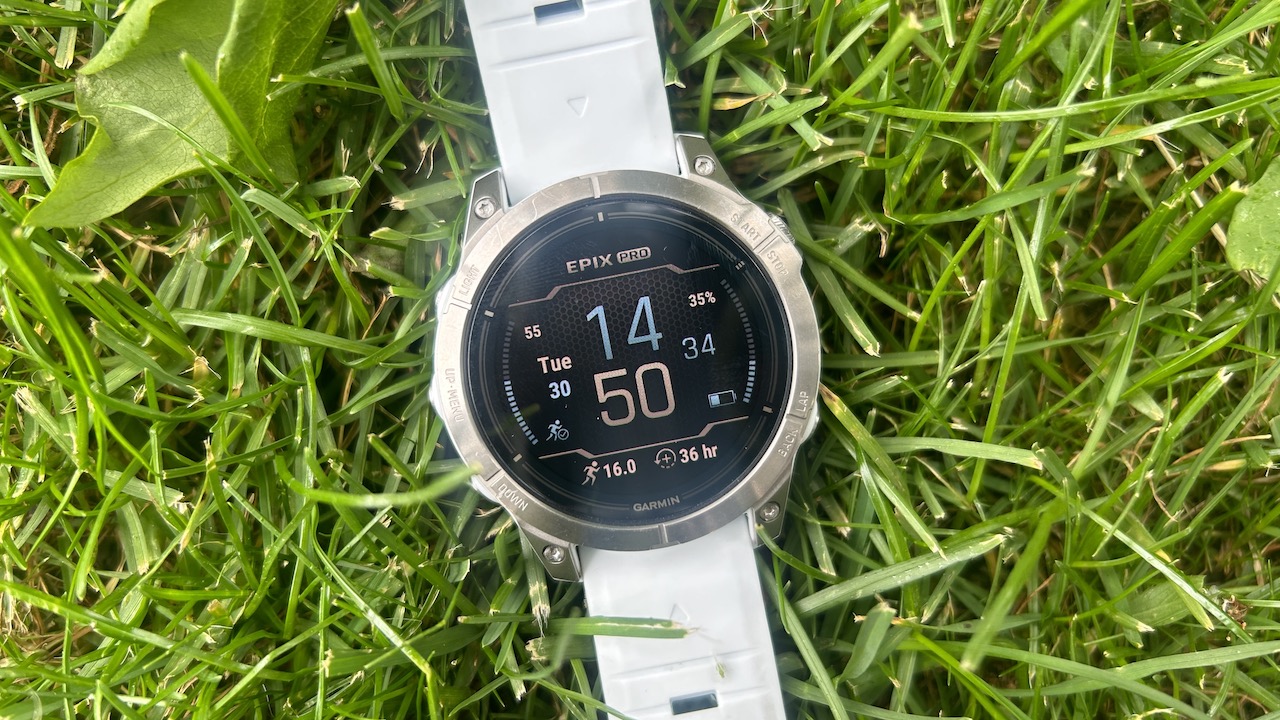
When the Garmin Epix 2 launched in early 2022 it immediately established itself as one of the best sports watches, bringing the features of the Garmin Fenix 7 to a watch with a bright AMOLED display.
With the Garmin Epix 2 Pro range, released on the same day as the Garmin Fenix 7 Pro, Garmin has made a few notable updates to the watch and expanded the range of sizes available. I’ve been testing the watch for two weeks and there are certainly some impressive new features, which I’ve ranked below ahead of our full review.
Garmin Epix 2 Pro: Price And Availability
The Garmin Epix 2 Pro launched on 31st May 2023 and starts at $899.99 in the US and £829.99 in the UK for the standard model of the watch, with the most expensive models in the range costing $1,099.99/£1,099.99. The Garmin Epix 2 now costs from $699.99/£709.99 to $799.99/£779.99.
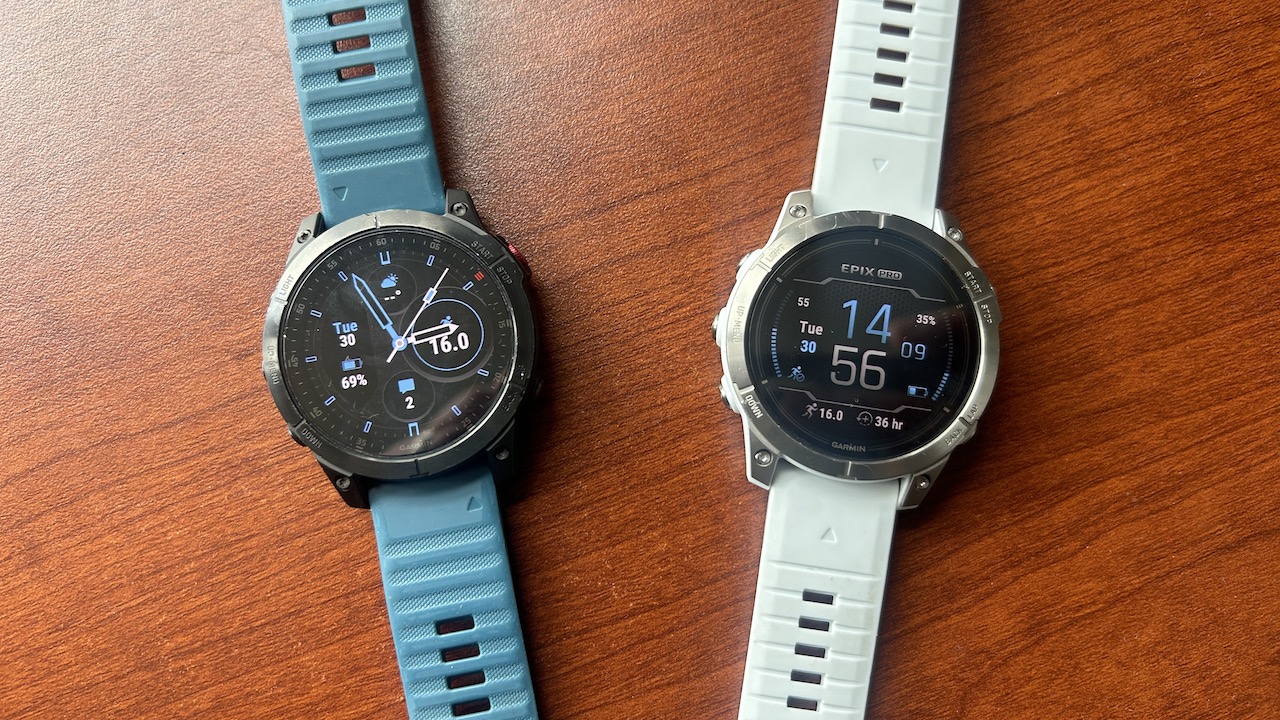
What’s New?
1. Heart Rate Monitor
The most important design update is the new heart rate monitor on the watch, which Garmin says should deliver better tracking. So far I’ve been very impressed with the heart rate monitor, which has barely missed a beat across eight runs and several other workouts, delivering impressively similar readings compared with a chest strap.
The Epix 2 Pro will still sometimes throw up an odd heart rate for the first couple of minutes of an activity, and it lags very slightly behind a chest strap’s reading during intervals. But across the workouts I’ve done it’s been close to being on the money.
There are caveats here. I’ve not done enough testing to declare that you can ditch a chest strap, and all my testing has been in warm weather, when optical heart rate monitors tend to perform better.
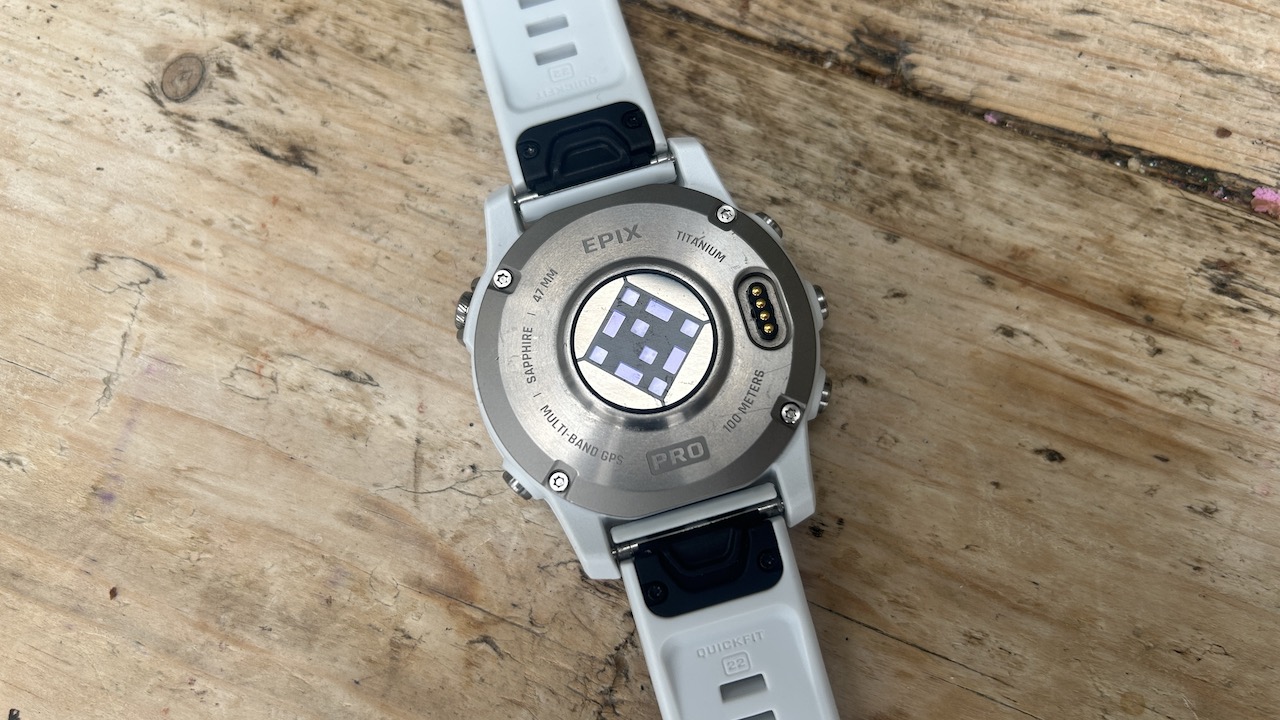
2. Three Sizes
There are three sizes in the Garmin Epix 2 Pro range, which mirror the sizing on the Fenix range: 42mm, 47mm and 51 cases, with the middle model matching the Garmin Epix 2.
Get the Coach Newsletter
Sign up for workout ideas, training advice, reviews of the latest gear and more.
The watches all have AMOLED touchscreens. The 42mm model’s screen is 1.2in, the 47mm watch’s screen is 1.3in, and the 51mm watch has a 1.4in screen. The standard Epix 2 Pro models have a stainless steel bezel and case back and have Gorilla glass screens, while the sapphire models use titanium for the bezel and back and have sapphire crystal screens.
I’ve been testing the 47mm Epix 2 Pro, which is the same in many ways as the Epix 2. It’s the 51mm model that might be the most interesting because of the impressive battery life it offers. The 42mm is a great addition to the range for those with smaller wrists, though it loses out on battery life.
3. Battery Life On The Larger Size
The battery life on the 47mm Epix Pro is exactly the same as on the Epix 2, while the smaller 42mm Epix 2 Pro offers less juice, as you’d expect. What I didn’t expect was just how much more battery life you get with the 51mm Epix 2 Pro, which will last 11 days in watch mode even with the always-on screen enabled.
| Header Cell - Column 0 | Garmin Epix Pro 42mm | Garmin Epix Pro 47mm | Garmin Epix Pro 51mm |
|---|---|---|---|
| Watch mode | 10 days/4 days always-on | 16 days/6 days always-on | 31 days/11 days always-on |
| GPS-only | 28 hours/20 hours always-on | 42 hours/30 hours always-on | 82 hours/58 hours always-on |
| All-systems GPS | 21 hours/16 hours always-on | 32 hours/24 hours always-on | 62 hours/48 hours always-on |
| All-systems GPS + music | 6 hours | 10 hours | 17 hours |
| Multi-band GPS | 13 hours/10 hours always-on | 20 hours/15 hours always-on | 38 hours/30 hours always-on |
This makes the 51mm watch the most interesting device in the Epix 2 Pro range for me, because as far as I can tell there’s nothing else available from any brand that can offer this kind of battery life with an AMOLED screen, even before you consider the top-tier feature set you get from Garmin.
The 47mm Epix 2 Pro I am testing has lived up to or slightly exceeded Garmin’s estimates, lasting just over six days with the always-on screen enabled. However, I don’t yet have the watch linked to Garmin Connect so notifications aren’t coming into the watch and it isn’t syncing data to the app. I’d expect the watches to hit Garmin’s numbers when linked up, just not exceed them.
4. Hill Score And Endurance Score
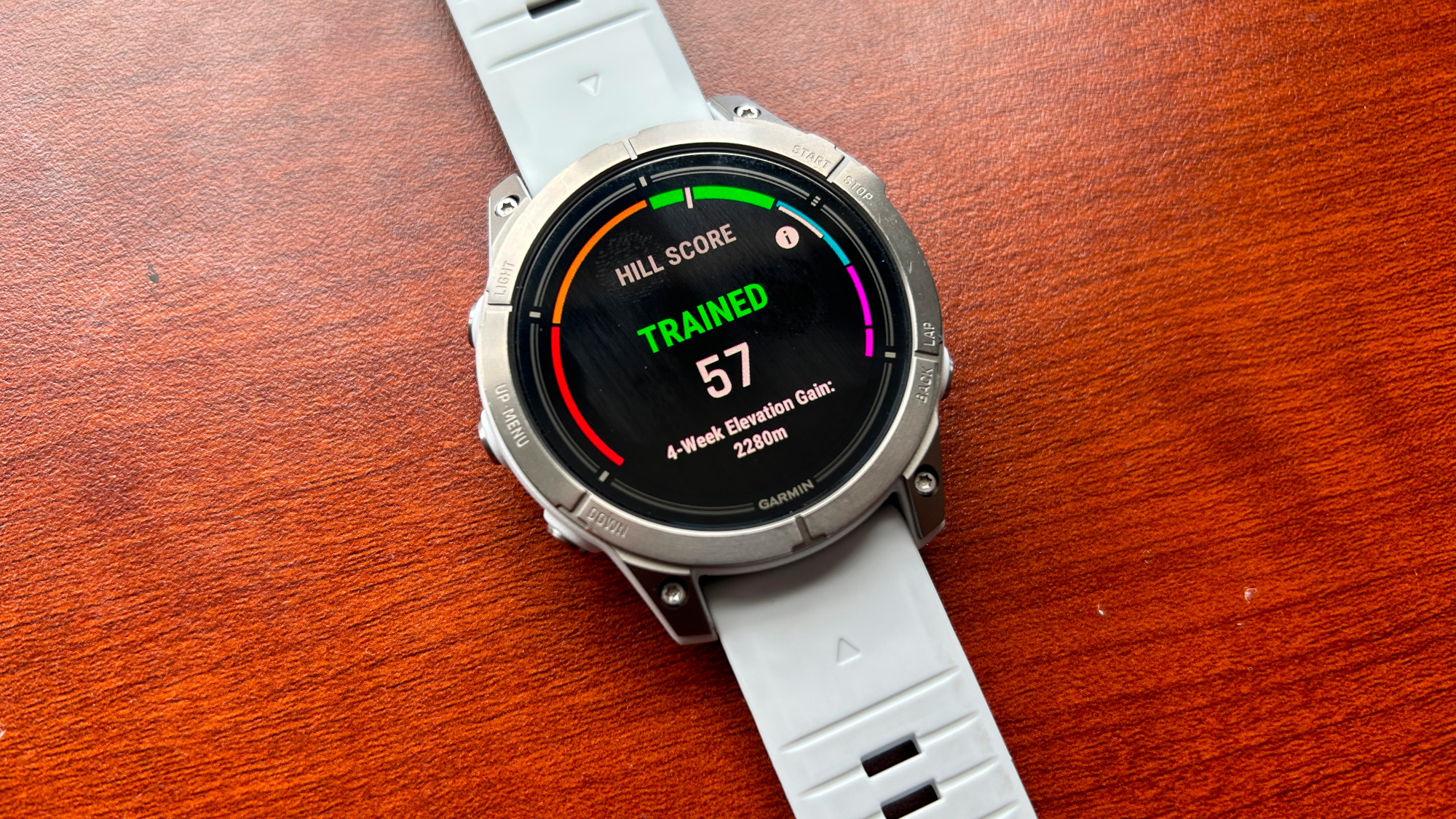
The two big new software features on the Garmin Epix 2 Pro are hill score and endurance score. Both of these provide color-coded scores to indicate how good you are at running hills and sustaining long efforts in any sport, respectively.
It takes two weeks for the watch to assess your hill and endurances scores, although if you already have two weeks of the data required in Garmin Connect you won’t have to wait for your scores. My scores landed after I linked the watch with the app, and my hill score was 57 out of 100, which is rated as “Trained” based on my strength and endurance on hills, plus VO2 max.
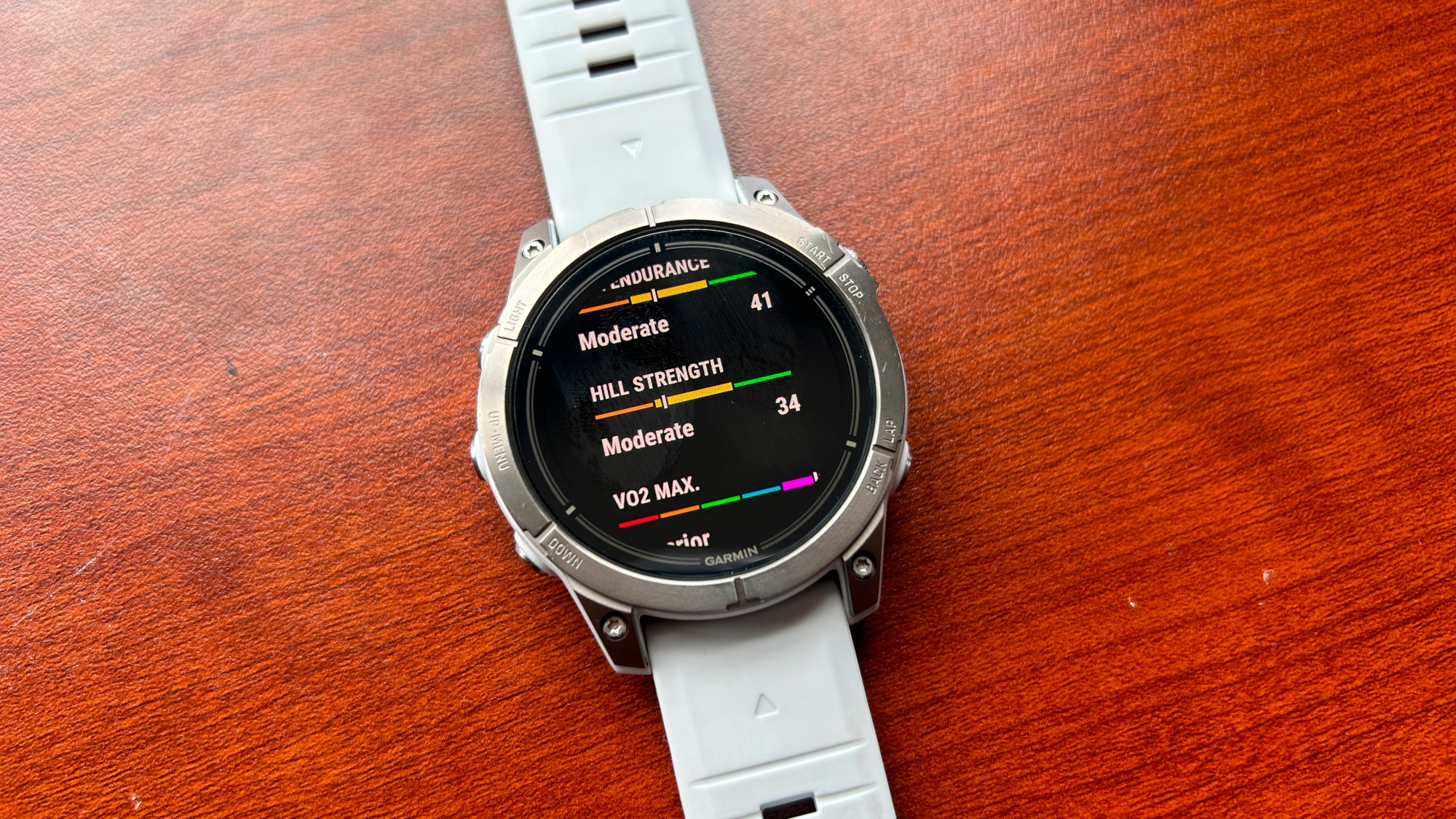
My endurance score of 9,694 (there is no upper limit to this score) was rated as Elite and the watch shows the sports that mainly contribute to your rating, with mine just showing running.
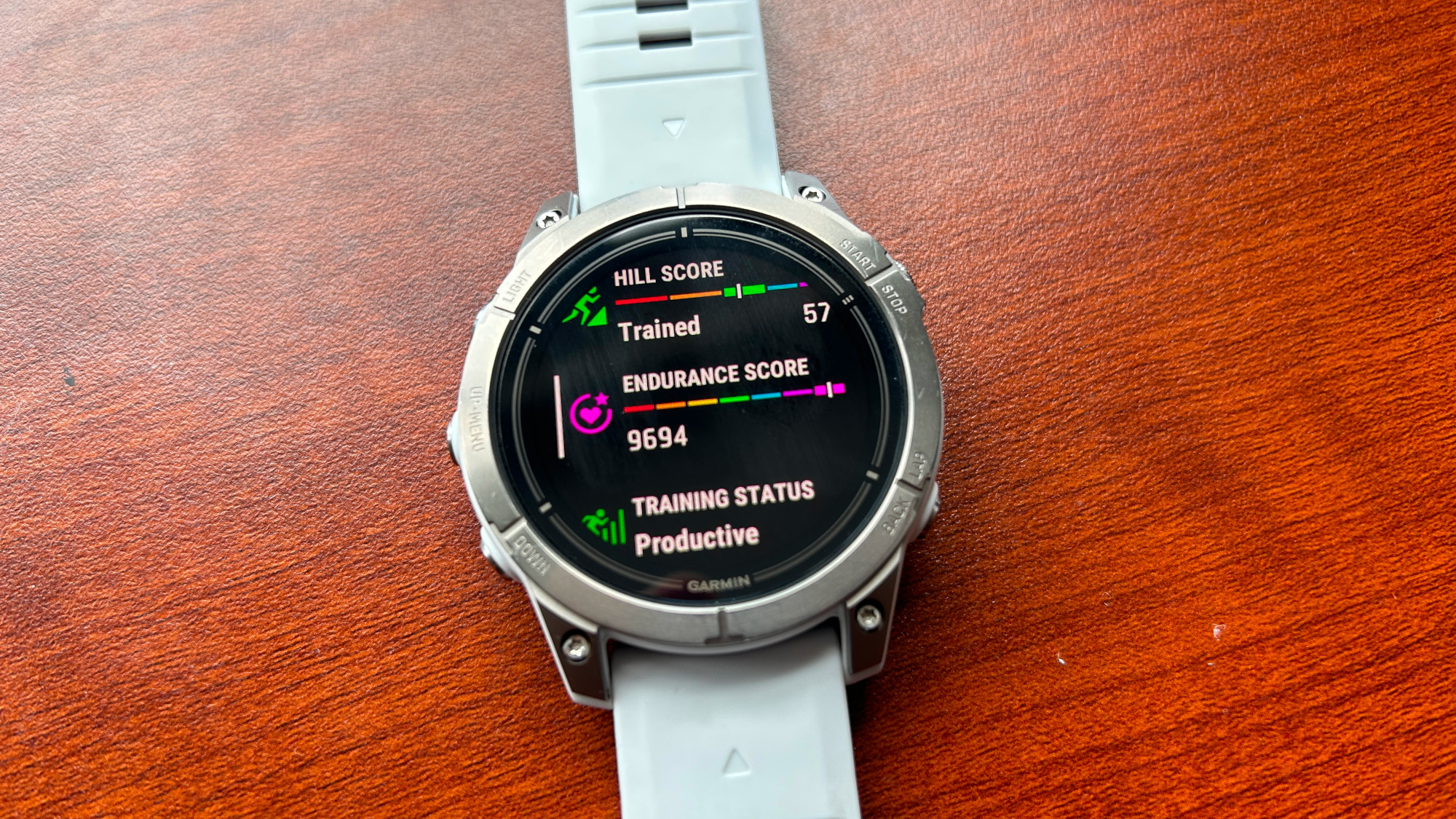
I focus on flatter road events and have a marathon PR of 2hr 28min, so my scores tally up with what I’d expect to see—weaker on hills, stronger on endurance. I’m running my first ultra later this year so hope to see my hill score getting better, along with my endurance.
The two scores are useful new parts of Garmin’s training analysis overall, if not essential. Both hill score and endurance score, along with the other software updates on the Epix 2 Pro, will roll out to the Epix 2 as well.
5. Flashlights
The other notable change in design is that all models of the Epix 2 Pro have a built-in LED flashlight, which has four brightness settings plus a red light mode. This light is surprisingly bright and while it isn’t something I’ve needed to use much in my testing of the Epix Pro so far, in the past the same flashlight on the Fenix 7X and Garmin Enduro 2 has come in useful as an extra light outside after dark.
6. Multi-Band GPS As Standard
All models of the Epix 2 Pro offer multi-band GPS tracking, which was only available on the sapphire version of the Epix 2. Garmin’s multi-band tracking is the most accurate I’ve come across and that’s been the case with the Epix 2 Pro so far in all my outdoor activities.
7. Red Shift Mode
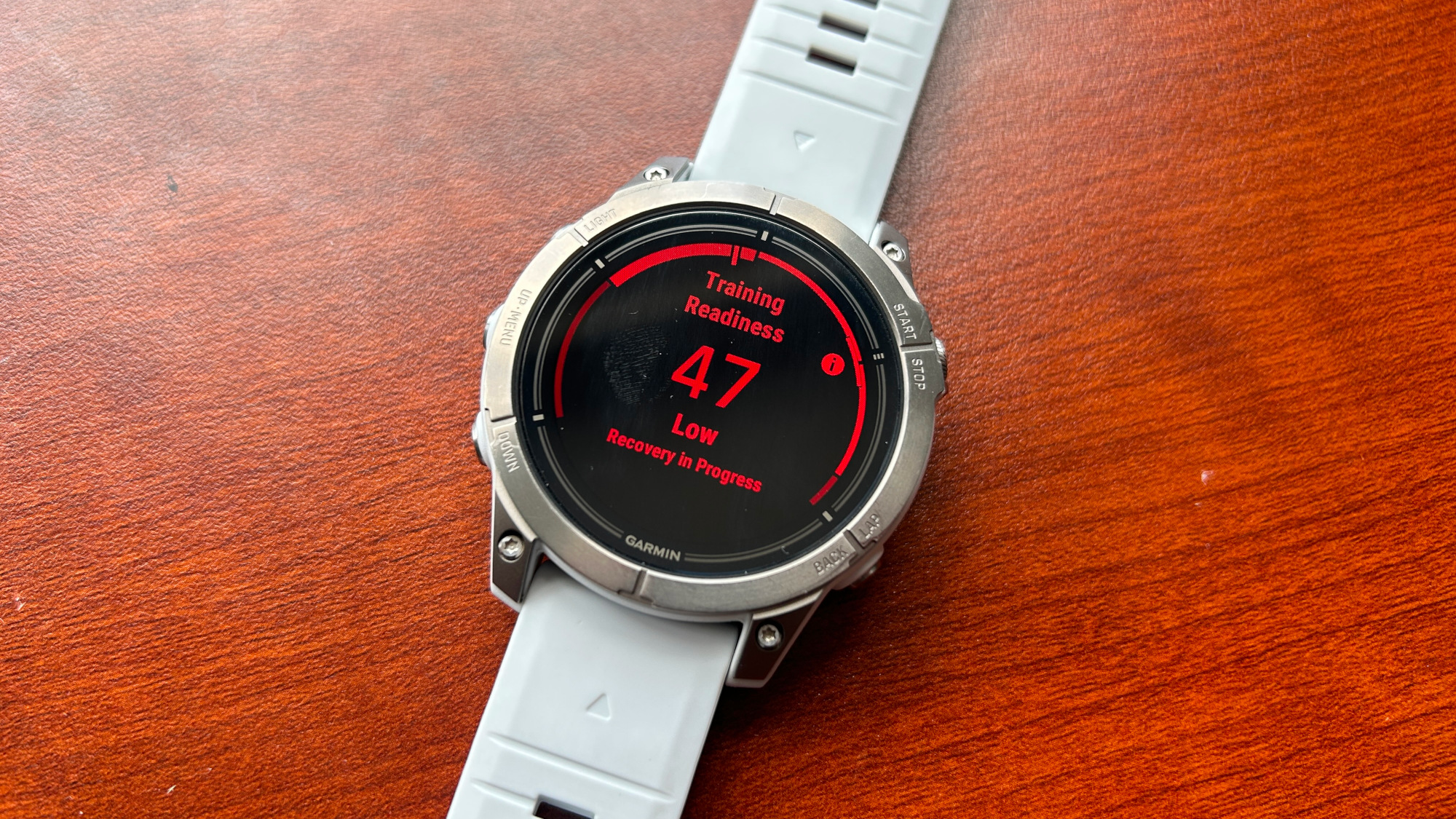
The new watches have a red shift mode to change the colors on the display to shades of red late in the day, which will reduce any impact of the screen on your sleep cycles. This is only available on the Epix 2 Pro, not the Fenix 7 Pro, and you can turn it on via the controls menu on the watch or set it to come on automatically when sleep mode is engaged on the watch.
When you turn it on, the display uses shades of red for everything, but otherwise the Epix 2 Pro performs as normal. I’m not sure this will have a big impact on sleep cycles compared with similar night modes on smartphones, but turning the display red does help preserve your night vision a little.
8. New Map Features
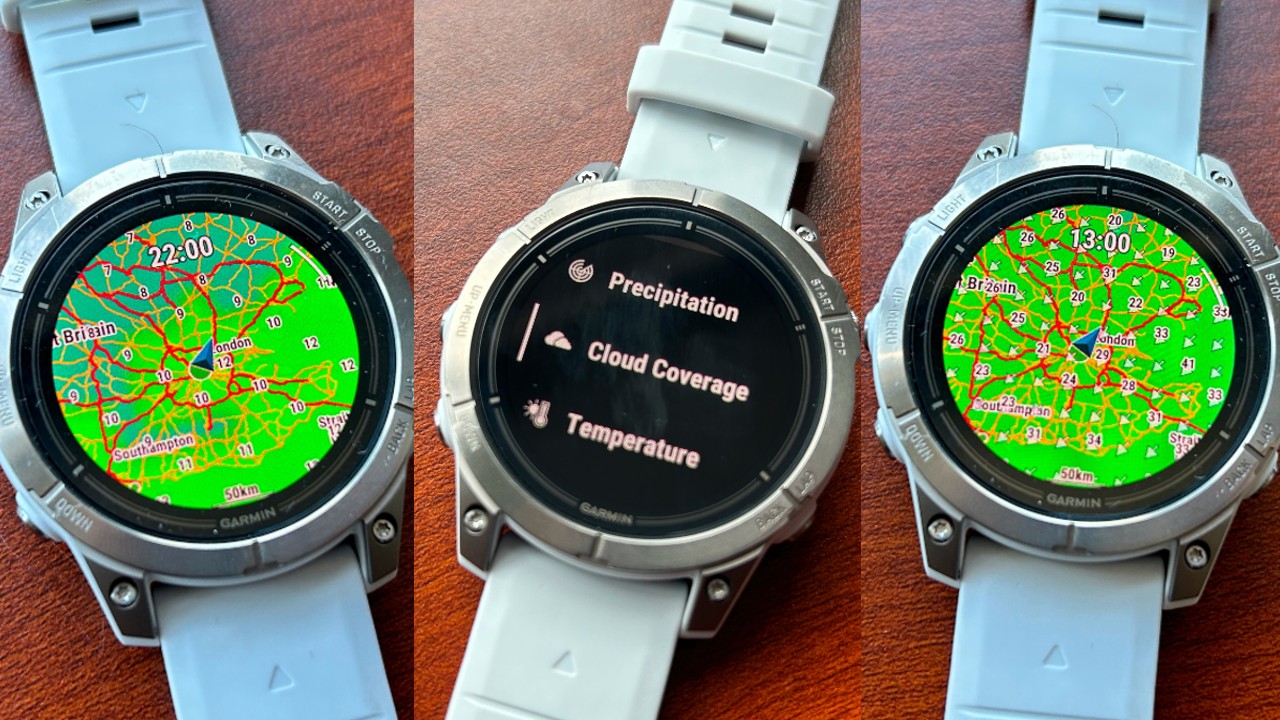
You can now see weather forecast overlays on the maps on the Epix Pro. To see the overlays, scroll down after clicking on the weather widget to the map, then select the overlay you want—precipitation, cloud coverage, temperature or wind. Then hit “play” and the map will show conditions over time in your location.
You can’t see the overlays on the maps during activities, which reduces its appeal for me because seeing the upcoming chance of rain during a run or cycle would be very helpful.
There is also some new relief shading on the maps to make them clearer, though I didn’t notice much difference from the Epix 2.
9. New Sports Modes
Basketball, horseback riding and football are among the new sports modes on the Epix 2 Pro, which will delight fans of those activities.

Nick Harris-Fry is a journalist who has been covering health and fitness since 2015. Nick is an avid runner, covering 70-110km a week, which gives him ample opportunity to test a wide range of running shoes and running gear. He is also the chief tester for fitness trackers and running watches, treadmills and exercise bikes, and workout headphones.
Coros Vertix 2S Review: The Garmin Fenix Rival Gets Some Useful Upgrades
How To Pick The Best Garmin Watch For You
